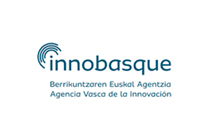 Eventos pasados: Arturo E. Hernandez. Emergentism, language control and the bilingual brain
Eventos pasados: Arturo E. Hernandez. Emergentism, language control and the bilingual brain
Arturo E. Hernandez. Emergentism, language control and the bilingual brain
When: 12 noon
In recent years, there has been renewed interest in the relationship between bilingualism and a possible advantage on non-verbal cognitive control tasks. In this talk, I will discuss work in my laboratory at the University of Houston that has looked at the nature of cognitive control in bilinguals. Results from studies in Houston do provide some evidence of a “bilingual advantage” in cognitive control. For example, there is evidence that bilinguals relative to monolinguals may show differences in the brain areas and behavior seen when engaged in cognitive control tasks. Furthermore, bilinguals show faster reaction times and reduced activity in brain areas devoted to cognitive control during word learning in a foreign language. Finally, more recent work suggests that there may be a genetic difference between monolinguals and bilinguals with regard to the certain genes that are involved in cognitive control. Future directions intended to pursue this work further in collaboration with the Neurocognitive research group headed by Prof. Dr. Christian Fiebach at Goethe University Frankfurt and in my laboratory at the University of Houston will be discussed.








